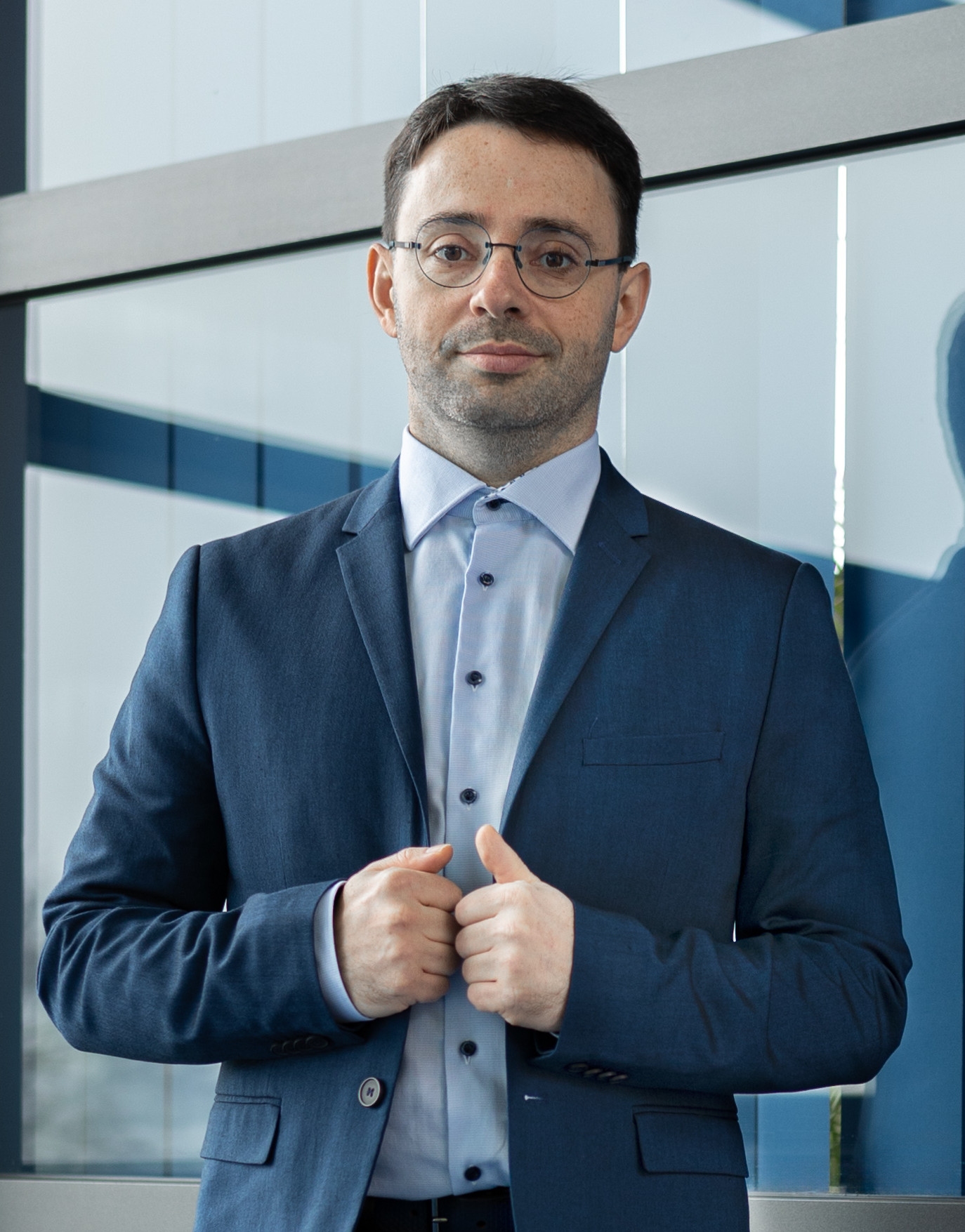Dmitri Bershadskyy, Dr.

Dr. Dmitri Bershadskyy
Lehrstuhl VWL, insb. Wirtschaftspolitik
Leitender wissenschaftlicher Mitarbeiter
- Experimental and Behavioral Economics
- Software Engineering
- AI and Algorithm Aversion
- Economics of Communication
-
Institutional Design
Begutachtete Zeitschriftenartikel
Bershadskyy, D., Krüger, J., Calıklı, G., Otto, S., Zabel, S., Greif, J., & Heyer, R. (2025). A laboratory experiment on using different financial-incentivization schemes in software-engineering experimentation. PeerJ Computer Science, 11, e2650. https://doi.org/10.7717/peerj-cs.2650
Bershadskyy, D., Dinges, L., Fiedler, M. A., Al-Hamadi, A., Ostermaier, N., & Weimann, J. (2024). Experimental economics for machine learning – a methodological contribution. PLoS ONE 19(12): e0314806. https://doi.org/10.1371/journal.pone.0314806
Bershadskyy, D. & Seidel, A. (2024). Choosing a victim you know – introducing communication to the mobbing game. Journal of Behavioral and Experimental Economics, 112, DOI: 10.1016/j.socec.2024.102265
Bershadskyy, D., Ghadwal, S., & Greif, J. (2024). MTVE – Magdeburg Tool for Videoexperiments. Journal of the Economic Science Association. https://github.com/MaXLab-OVGU/MTVE.
Krüger, J., Çalıklı, G., Bershadskyy, D., Otto, S., Zabel, S., & Heyer, R. (2024). Guidelines for using financial incentives in software-engineering experimentation. Empirical Software Engineering, 29(5), 1-53.
Dinges, L., Fiedler, M. A., Al-Hamadi, A., Hempel, T., Abdelrahman, A., Weimann, J., Bershadskyy, D. & Steiner, J. (2024). Automated Deception Detection from Videos: Using End-to-End Learning Based High-Level Features and Classification Approaches. Neural Computing and Applications.
Bershadskyy, D., Sachs, F. E., & Weimann, J. (2023). Collective bargaining in a shrinking group game: The role of information and communication. Journal of Economic Behavior & Organization, 209, 391–410.
Bershadskyy, D. (2023). Reverberation effect of communication in a public goods game. PLOS ONE, 18(2), Article e0281633.
Dinges, L., Fiedler, M. A., Al-Hamadi, A., Abdelrahman, A., Weimann, J., & Bershadskyy, D. (2023). Uncovering lies: deception detection in a rolling-dice experiment. In International Conference on Image Analysis and Processing (pp. 293-303). Cham: Springer Nature Switzerland.
Krüger, J., Çalıklı, G., Bershadskyy, D., Heyer, R., Zabel, S., & Otto, S. (2022). Registered report: A laboratory experiment on using different financial-incentivization schemes in software-engineering experimentation. arXiv preprint arXiv:2202.10985.
Othman, E., Saxen, F., Bershadskyy, D., Werner, P., Al-Hamadi, A., & Weimann, J. (2019). Predicting group contribution behaviour in a public goods game from face-to-face communication. Sensors, 19(12), Article 2786.
Weitere Veröffentlichungen
Bershadskyy, D., Brautzsch, H. U., Claudio, J. C., Drygalla, A., Exß, F., Heinisch, K., ... & Schultz, B. (2018). Konjunktur aktuell: Konjunktur weiter stark, aber Risiken nehmen zu. Konjunktur aktuell, 6(1), 2-21.
Bershadskyy, D. (2018). Die Mär vom egoistischen Ökonomen: Wie Ökonomen auf Anreize reagieren. Wirtschaft im Wandel, 24(1), 8-11.
Bershadskyy, D., Brautzsch, H., Drygalla, A., Heinisch, K., Holtemöller, O.., Lindner, A., Wieschemeyer, M., & Zeddies, G. (2017). Die mittelfristige wirtschaftliche Entwicklung in Deutschland für die Jahre 2017 bis 2022 und finanzpolitische Optionen einer neuen Bundesregierung. Konjunktur aktuell, 5(5), 138-145.
Gaus, O., Bremer, C., & Bershadskyy, D. (2014). MOOCs als Unternehmensstrategie für einen globalen Bildungsmarkt. In D. Lenzen & H. Fischer (Hrsg.), „Change: Hochschule der Zukunft" -Campus Innovation 2013, Konferenztag Studium und Lehre, Jahrestagung Universitätskolleg, Universitätskolleg-Schriften, Band 3. Universität Hamburg.
Bershadskyy, D., Bremer, C., & Gaus, O. (2013). Bildungsfreiheit als Geschäftsmodell: MOOCs fordern die Hochschulen heraus. In C. Bremer & D. Krömker (Hrsg.), E-Learning zwischen Vision und Alltag. Zum Stand der Dinge. Münster: Waxmann Verlag.
Working Papers *
Bershadskyy, D., Sachs, F.E. & Weimann, J. (2024). ChatGPT’s financial discrimination between rich and poor – misaligned with human behavior and expectations.
Gerdes, R., Adler, M., Bershadskyy, D., & Kaiser, F.G. (2024). Predicting pro-environmental consumer decisions with a personal reason and product-specific costs.
Bershadskyy, D., Krüger, J., Çalıklı, G., & Greif, J. (2025) Expectations of the Impact of Performance-Dependent Incentives on Behavior in Software-Engineering Experiments.
Bershadskyy, D., Heinrich, K., & Sachs, F.E. (2025). Explainable AI for Enhancing Human Error Detection in Manufacturing Quality Control.
Dinges, L., Fiedler, Al-Hamadi, A., Bershadskyy, D., Weimann, J. (2025) Multimodal Lie Detection.
Bershadskyy, D., Ostermaier, N., Dinges, L., Fiedler, M.A., Greif, J., Al-Hamadi, A., Weimann, J. (2025) Lie Against AI: Revealing private information through AI in an economic experiment.
Bershadskyy, D., Heinrich, K., & Sachs, F.E. (20225). The era of algorithmic advice.
Work in progress
Bershadskyy, D., Adler, M., & Kaiser, F.G. Incurring personal costs for a better society – kindness behind public goods contributions.
Bershadskyy, D., Bock, O., Lauer, T., Nicklisch, A. & Weimann, J. (Manuscript in preparation). Analysis of data publication requirements in journals for economic experiments.
Bershadskyy, D. A conspiracy in the lab – testing the proportionality bias through non-informative signals.
Bershadskyy, D., Krüger, J., Çalıklı, G., & Greif, J. There is no harm in asking. The effect of implicit assumptions in work assignments.
Wintersemester
Master Abschlussseminar/-kolloquium/ Master Thesis with Research Seminar (869997/30000/29994)
Sommersemester
- Bachelor-Abschlusseminar (20000) (Link zur LV im LSF)
- Methoden der Experimentellen Wirtschaftsforschung (50005) (Link zur LV im LSF)
- Seminar: Verhaltensökonomische Aspekte bei der Digitalisierung und KI-Anwendungen (Link zur LV im LSF)